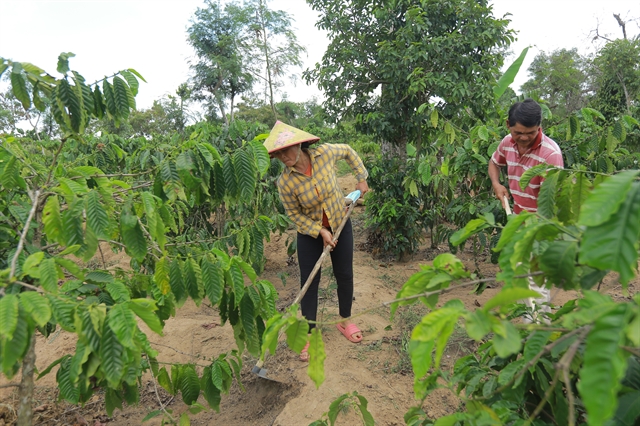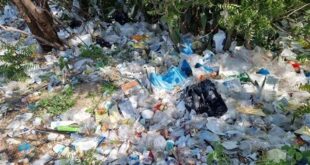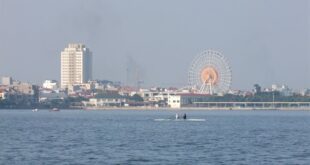
ĐÀ LẠT — A project to strengthen integrated sustainable landscape management through a deforestation-free jurisdiction in the Central Highlands Lâm Đồng and Đắk Nông provinces was launched on Friday.
Natural forests in Việt Nam, like most in other countries, are facing a paradox. They are recognised as an invaluable source of goods and services, sustaining the livelihoods of millions of people and supporting vital ecological services such as climate regulation and biodiversity.
These populations directly dependent on natural forests and playing a major role in forest protection are frequently also the poorest and have fewer economic opportunities than populations living in urban areas.
Việt Nam’s Central Highlands region has been facing a significant loss of its natural forests due to converting to plantation forests. From 2005 to 2020, the natural forest area in the Highlands was reduced from 2.83 million to 2.18 million hectares, while the planting area for coffee increased from 449,400 to 577,119 hectares, rubber from 86,892 to 259,200 hectares, and timber from 144,420 to 368,734 hectares.
In addition, the degradation of agricultural lands due to chemical pollution and soil erosion has become extremely serious and has led the Highlands to account for 22 per cent of Việt Nam’s natural emissions in land use. Each year, approximately 6.8 million of CO2 is released from coffee farms in the Central Highlands from fertilisers, residues, and fuel.
To transition towards a model of sustainable landscape management without deforestation, the new EU-financed project in Lâm Đồng and Đắk Nông will be developing and piloting an integrated approach to ecosystem management and protection by creating sustainable incomes from the forest that will enable farmers to stay on their own land and contribute to improved livelihoods for people living near forests.
In his remarks at the workshop, Jesus Lavina, first counselor, deputy head of the Cooperation Department of the Delegation of the European Union to Việt Nam, said: “The project’s three specific objectives – to enhance forest ecosystems, improve livelihoods, and sustain food production – are highly relevant in the Central Highlands and fully aligned with policies and strategies of both Việt Nam and the European Union. Joining our forces in tackling deforestation and forest degradation will positively impact local communities, including the most vulnerable indigenous peoples who rely heavily on forest ecosystems.”
Patrick Haverman, deputy resident representative of UNDP Việt Nam, said: “The project is designed to use a deforestation-free jurisdictional approach, a holistic framework to demonstrate sustainable development without deforestation in a particular jurisdiction as a key to achieve the expected results. This is an innovative idea that has been accepted globally.”
Haverman also emphasised that the project will make significant contributions to sustainable forestry development in the Central Highlands and implement the Vệt Nam Forestry Development Strategy for 2021-2030 and the recently approved Strategy for Sustainable Agriculture and Rural Development for 2021-2030.
The Government highly appreciates the project as an essential and relevant initiative to directly contribute to the implementation of the Sustainable Development Goals, as well as national strategies and commitments to reducing greenhouse gas emissions, green growth, forest protection, and the sustainable agricultural development of both Việt Nam, and the Central Highlands in particular.
The project will be implemented over four years (2022–2026) in Lâm Đồng and Đắk Nông provinces. The project’s targets by 2026 are to protect 25,000 hectares of natural forest; reduce harmful CO2 emissions by three million tonnes; enable 35 per cent of the project area’s marginalised populations in both provinces to benefit from improved livelihoods, especially women and ethnic minorities; and increase the total value of commodities in the project area by 25 per cent.
Its results will be replicated and integrated into Việt Nam’s development strategies and policies.
The project’s total budget is five million euros, funded by the EU through UNDP Việt Nam.
Four international organisations are also providing additional technical assistance to the project: the International Center for Tropical Agriculture, the European Forest Institute, the Sustainable Trade Initiative, and the United Nations Environment Programme. — VNS
- Reduce Hair Loss with PURA D’OR Gold Label Shampoo
- Castor Oil Has Made a “Huge” Difference With Hair and Brow Growth
- Excessive hair loss in men: Signs of illness that cannot be subjective
- Dịch Vụ SEO Website ở Los Angeles, CA: đưa trang web doanh nghiệp bạn lên top Google
- Nails Salon Sierra Madre
 VnExpress News The News Gateway of Vietnam
VnExpress News The News Gateway of Vietnam




